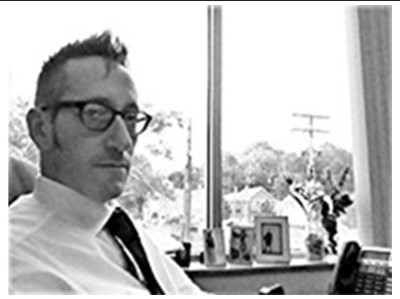By MICHAEL DAVIDOW, Radio Free New Hampshire
“These are the stakes,” Lyndon Johnson intoned. “To make a world in which all of God’s children can live, or to go into the darkness. We must either love each other, or we must die.”
Those words ended one of the most famous political advertisements of all time, the Daisy spot, or “Peace, Little Girl.” Filmed in 1964, it showed a small child picking flower petals. Then a voice counted down from ten, a nuclear explosion filled the screen, and Johnson made his pitch. It only aired one time. It was a swipe at Goldwater that many people found unfair.
Johnson was as hard-headed as a politician could be. Funny, then, to hear him talking about love. But the early sixties were a funny time. Memories of the Second World War were still fresh. One more generation of American citizens had just learned for itself that General Sherman had been right, and war was hell. Unsentimental men with cash signs for eyes and poets and liberals and farmers and factory workers had all seen it for themselves. Where hatred is given free rein, next comes death and destruction.
Consider another soft-headed liberal: Eisenhower, former Supreme Commander of the Allied Armies, whose final words to America ended like this: “We pray that peoples of all faiths, all races, all nations, may have their great human needs satisfied; that those now denied opportunity shall come to enjoy it to the full; that all who yearn for freedom may experience its spiritual blessings; that those who have freedom will understand, also, its heavy responsibilities; that all who are insensitive to the needs of others will learn charity; that the scourges of poverty, disease and ignorance will be made to disappear from the earth, and that, in the goodness of time, all peoples will come to live together in a peace guaranteed by the binding force of mutual respect and love.” There’s that word again: love. How strange but fitting it sounds, coming from an old soldier.
Back in those days, anyway, our Supreme Court was led by the former governor of California, a canny politician (and Republican) named Earl Warren. In line with its times, the Warren Court prioritized decency and kindness, and it sometimes did so at the expense of legal rigor. Its decisions are now seen as the high water mark of liberal jurisprudence.
Today’s Supreme Court is taking an axe to Earl Warren’s legacy. After getting rid of abortion rights a while ago, in the span of a few days, our justices also recently told Joe Biden that he couldn’t forgive student loans, they told our nation’s colleges to stop trucking with affirmative action, and they told businesses that they were free to discriminate against gay people. Somewhere there’s a gay black student who probably feels singled out; he or she must be asking “why me?” Well, that’s easy. It’s because there are people who hate gays, blacks, and students, and those hatreds are now being given legal standing.
Moreover, just as the Warren Court occasionally sacrificed legal arguments in favor of equitable ones, today’s court does the same thing. Our conservative super-majority would never admit it, of course; these bought-and-sold chiselers will claim to their dying day that their logic admits of no politics whatsoever; it’s a mere coincidence that their decisions always help the same people (the rich, the religious, so long as that religion is Christianity, the gun-lovers, the nativists) and always hurt the same people (the poor, the weak, the troubled, the foreign). But the pendulum swing is too obvious to ignore. This is payback time, for seventy-five years of state-supported lovingkindness.
And I wonder what the world will look like when all of these changes take root, and I wonder what kind of a world these people want to see; these soft people, who have never known war, these self-styled moralists, who have never seen what untrammelled hatred can do, who are willing to pour gasoline on smoldering flames, because they themselves aren’t getting burned.
Which brings me back to Johnson’s words, themselves a distant echo of Lincoln’s words (from his first inaugural: “We are not enemies, but friends. We must not be enemies. Though passion may have strained, it must not break our bonds of affection…”); themselves an echo of Jefferson’s words (from another first inaugural: “Let us then, fellow citizens, unite with one heart and one mind, let us restore to social intercourse that harmony and affection without which liberty, and even life itself, are but dreary things…”). Whatever it is, it won’t be America.
Davidow writes Radio Free New Hampshire for InDepthNH.org. He is also the author of Gate City, Split Thirty, and The Rocketdyne Commission, three novels about politics and advertising which, taken together, form The Henry Bell Project, The Book of Order, and The Hunter of Talyashevka . They are available on Amazon and Barnes and Noble. Davidow’s Chanukah Land can be found here.





